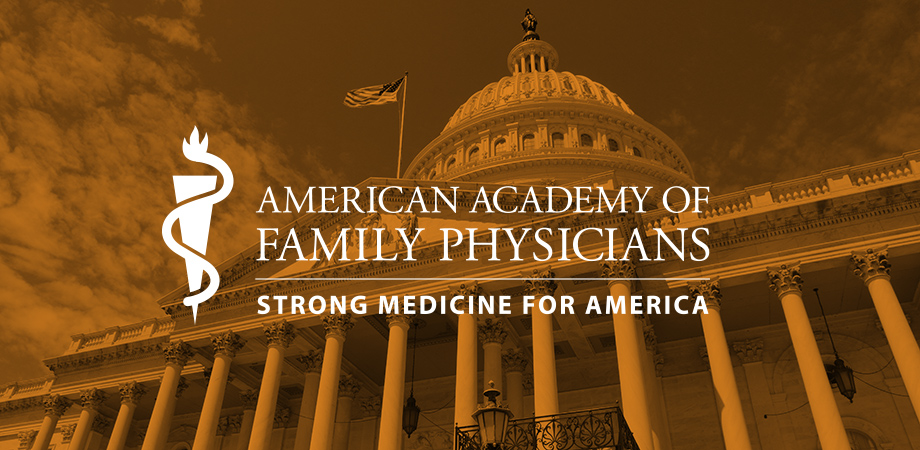Family Medicine Advocacy Rounds, June 2024
AAFP backs legislation to streamline prior authorizations, applauds SCOTUS ruling on mifepristone, and more
By AAFP’s Federal Advocacy Team
AAFP applauds reintroduction of legislation to streamline prior authorizations
Why it matters:
Family physicians are overburdened by prior authorization requirements, which can often cause harmful care delays and inadvertently lead to negative patient outcomes. AAFP advocates reforming prior authorization and remains focused on enabling physicians and patients to have access to clear guidelines for prior authorization requirements and timely responses from insurance plans.
What we’re working on:
- On June 12, congressional champions reintroduced the Improving Seniors’ Timely Access to Care Act (H.R. 8702/S. 4518), which would streamline and standardize prior authorization under the Medicare Advantage program and protect patients from unnecessary delays in care. We are urging Congress to swiftly pass this bipartisan legislation.
- While the Centers for Medicare and Medicaid Services recently finalized proposals to reform prior authorization, legislation is still necessary to ensure that these much-needed changes are made permanent. That’s why passage of the Seniors’ Act is imperative.
Family physicians relieved SCOTUS preserves patient-physician relationship
The June 13 U.S. Supreme Court decision in the case of Alliance for Hippocratic Medicine v. Food and Drug Administration preserves the patient-physician relationship and upholds access to mifepristone, an FDA-approved medication.
AAFP has long made clear that patients must be able to depend on their physicians to help them in making critical decisions about their health. Physicians must be able to practice medicine that is informed by their years of medical education, training, and experience and the available evidence.
Read more in AAFP’s statement.
AAFP asks CDC and FDA to ensure continued, timely access to COVID-19 vaccines
Why it matters:
As we prepare for another COVID-19, flu, and RSV season, it’s important that family physicians are able to provide important immunizations to patients in a timely manner.
What we're working on:
- AAFP joined the COVID-19 Vaccine Education and Equity project and several other health organizations in sending a letter to the Centers for Disease Control and Prevention and the U.S. Food and Drug Administration to ensure that this year, the COVID-19 vaccine is available early in the season.
- At the same time, the country is not where it needs to be with uptake. Part of the reason is that primary care physicians are unable to easily administer all recommended vaccines to their patients. This is because not all Advisory Committee on Immunization Practices.
- AAFP President Steven P. Furr, MD, wrote in MedPage Today that Congress must pass legislation to require Medicare Part B coverage of all recommended vaccines, allowing patients to access vaccines more readily from their usual source of care and improving our nation’s uptake of one of the most cost-effective public health measures.
AAFP applauds OCR guidance to help practices impacted by cyberattack
Why it matters:
AAFP is pleased that the U.S. Department of Health and Human Services has provided updated guidance to make clear that “covered entity” health care institutions affected by the Change cyberattack can contact Change and direct it to notify patients directly that their information was compromised by the breach.
AAFP had previously asked for more guidance from HHS regarding Health Insurance Portability and Accountability Act–related reporting requirements in relation to the Change Healthcare attack. The announcement comes on the heels of a joint letter from AAFP and more than 100 other health care organizations in requesting that HHS’ Office of Civil Rights clarify that Change Healthcare is responsible for notifying impacted patients of the breach and all related reporting requirements, alleviating practices’ legal concerns and allowing them to focus on continuing to recover from the attack.
What we're working on:
- AAFP continues to urge Congress to closely examine how unchecked consolidation affects the overall health system from the perspective of patients and the physicians who care for them.
- The cyberattack on Change Healthcare has had far-reaching implications for family physicians and other providers of health care services, affecting their ability to receive payments and perform everyday business functions that are essential to the delivery of patient care. AAFP recently shared recommendations with the House Energy and Commerce Subcommittee ahead of its April hearing “Examining Health Sector Cybersecurity in the Wake of the Change Healthcare Attack.”
What we're reading
AFP President-elect Jen Brull, MD, spoke with LinkedIn News about policies to improve access to behavioral health care, including adequate reimbursement for integrated care and training more family physicians in areas where there are shortages by advocating for more investment in the Teaching Health Center Graduate Medical Education Program, which funds residency spots in underserved areas.
AAFP Board Chair Tochi Iroku-Malize, MD, MPH, spoke to CNN about how family physicians can help address the maternal health crisis, which is alarmingly high in the U.S.
Yalda Jabbarpour, MD, director of the AAFP’s Robert Graham Center, wrote an op-ed in Modern Healthcare about the need to invest in primary care to avert dire workforce shortages. She outlines solutions to help physicians, including expanding team-based care models, enacting payment reform, and innovative technologies that can address clinician burnout.
For the latest policy updates impacting family medicine, follow us at @aafp_advocacy.
